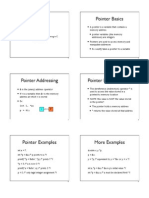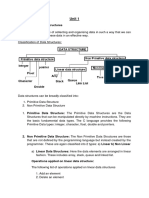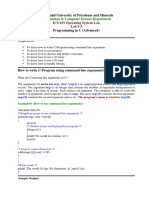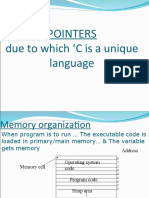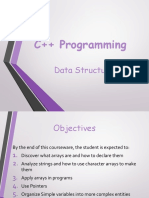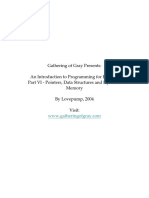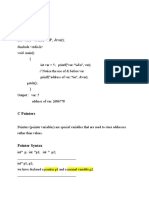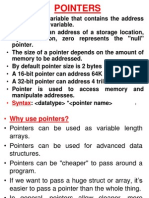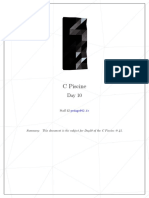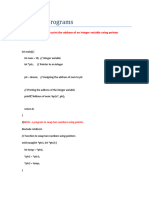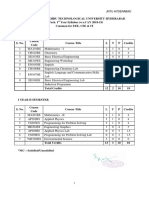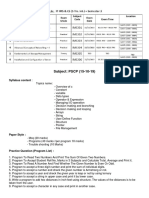0% found this document useful (0 votes)
21 views36 pages12 Structure - Union and Pointer
The document discusses structures and unions in C. Structures allow grouping of related data types together under one name. Unions allocate space for the largest member like structures but store data of only one member at a time.
Uploaded by
dhruvbatraheelCopyright
© © All Rights Reserved
We take content rights seriously. If you suspect this is your content, claim it here.
Available Formats
Download as PDF, TXT or read online on Scribd
0% found this document useful (0 votes)
21 views36 pages12 Structure - Union and Pointer
The document discusses structures and unions in C. Structures allow grouping of related data types together under one name. Unions allocate space for the largest member like structures but store data of only one member at a time.
Uploaded by
dhruvbatraheelCopyright
© © All Rights Reserved
We take content rights seriously. If you suspect this is your content, claim it here.
Available Formats
Download as PDF, TXT or read online on Scribd
/ 36












